On the road to exile, thousands of people from Honduras, El Salvador or Guatemala are fleeing the multiple violence in Central America to reach the United States in search of a better life. In Tapachula, a city located on the southern border of Mexico, these migrants mix with new nationalities from the African continent. In June 2019, by sealing new agreements aimed at curbing the advance of exiles to the north, Mexico hardened its migration policy under pressure from the United States, turning this gateway city into a prison.
Tapachula, a prison town for exiles

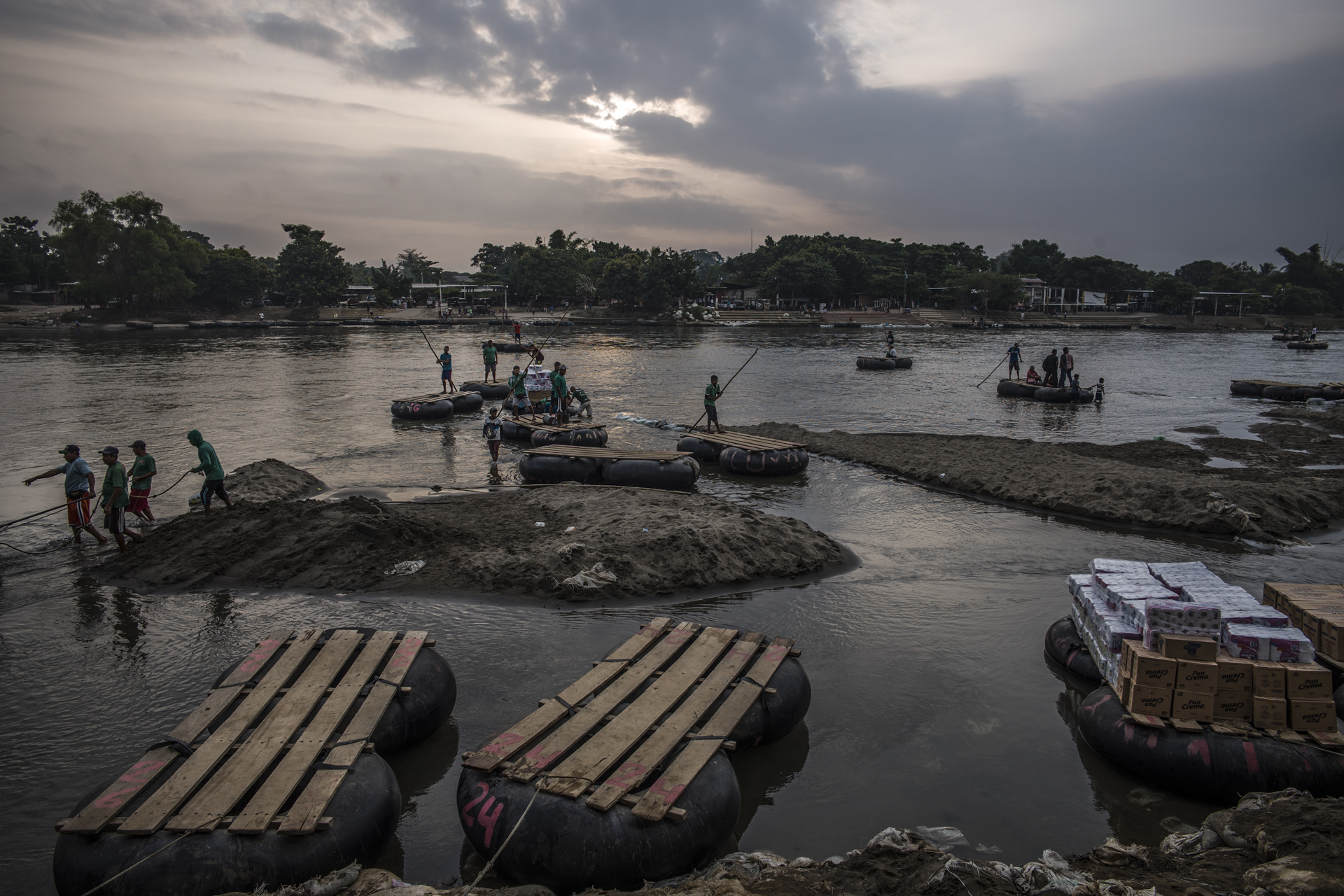
The Suchiate River that separates Guatemala from Mexico is a crossing point for many people. The presence of the military at the border is deterring exiles from crossing. Hidalgo, November 26th, 2019. © OLIVIER PAPEGNIES On the road to exile, thousands of people from Honduras, El Salvador or Guatemala are fleeing the multiple violence in Central America to reach the United States in search of a better life. In Tapachula, a city located on the southern border of Mexico, these migrants mix with new nationalities from the African continent. In June 2019, by sealing new agreements aimed at curbing the advance of exiles to the north, Mexico hardened its migration policy under pressure from the United States, turning this gateway city into a prison.
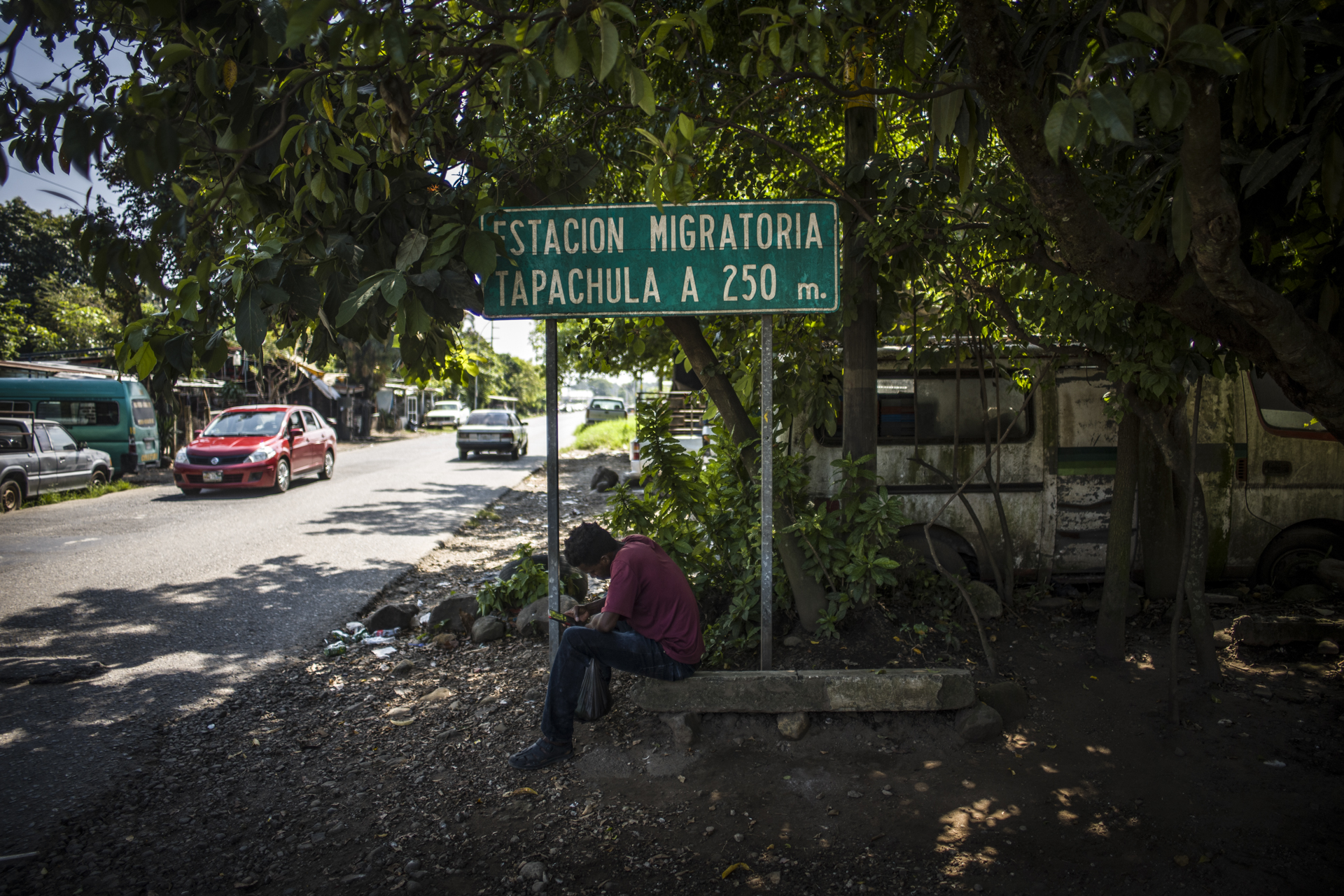
The city of Tapachula, in Chiapas in southern Mexico, has become in a few years the migratory crossroads. Tapachula, November 25th, 2019. © OLIVIER PAPEGNIES On the road to exile, thousands of people from Honduras, El Salvador or Guatemala are fleeing the multiple violence in Central America to reach the United States in search of a better life. In Tapachula, a city located on the southern border of Mexico, these migrants mix with new nationalities from the African continent. In June 2019, by sealing new agreements aimed at curbing the advance of exiles to the north, Mexico hardened its migration policy under pressure from the United States, turning this gateway city into a prison.
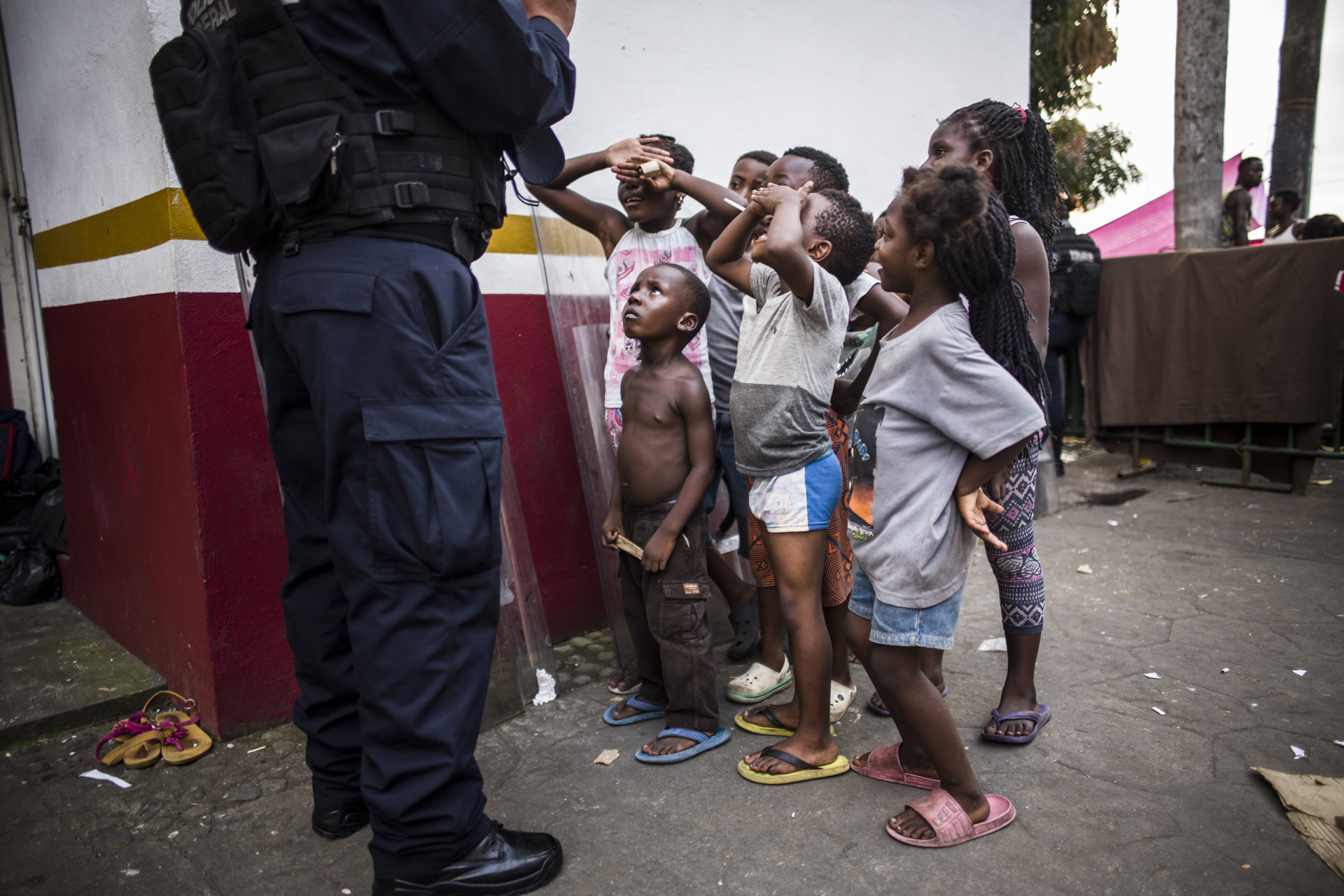
Leaving Europe, more and more Africans are crossing the Atlantic to try to reach the United States or Canada, via South and Central America. This is a long, costly and, above all, dangerous journey, as they may encounter drug and human traffickers, as well as venomous animals (especially in the Darien jungle between Colombia and Panama). Tapachula, November 26th, 2019. © OLIVIER PAPEGNIES On the road to exile, thousands of people from Honduras, El Salvador or Guatemala are fleeing the multiple violence in Central America to reach the United States in search of a better life. In Tapachula, a city located on the southern border of Mexico, these migrants mix with new nationalities from the African continent. In June 2019, by sealing new agreements aimed at curbing the advance of exiles to the north, Mexico hardened its migration policy under pressure from the United States, turning this gateway city into a prison.
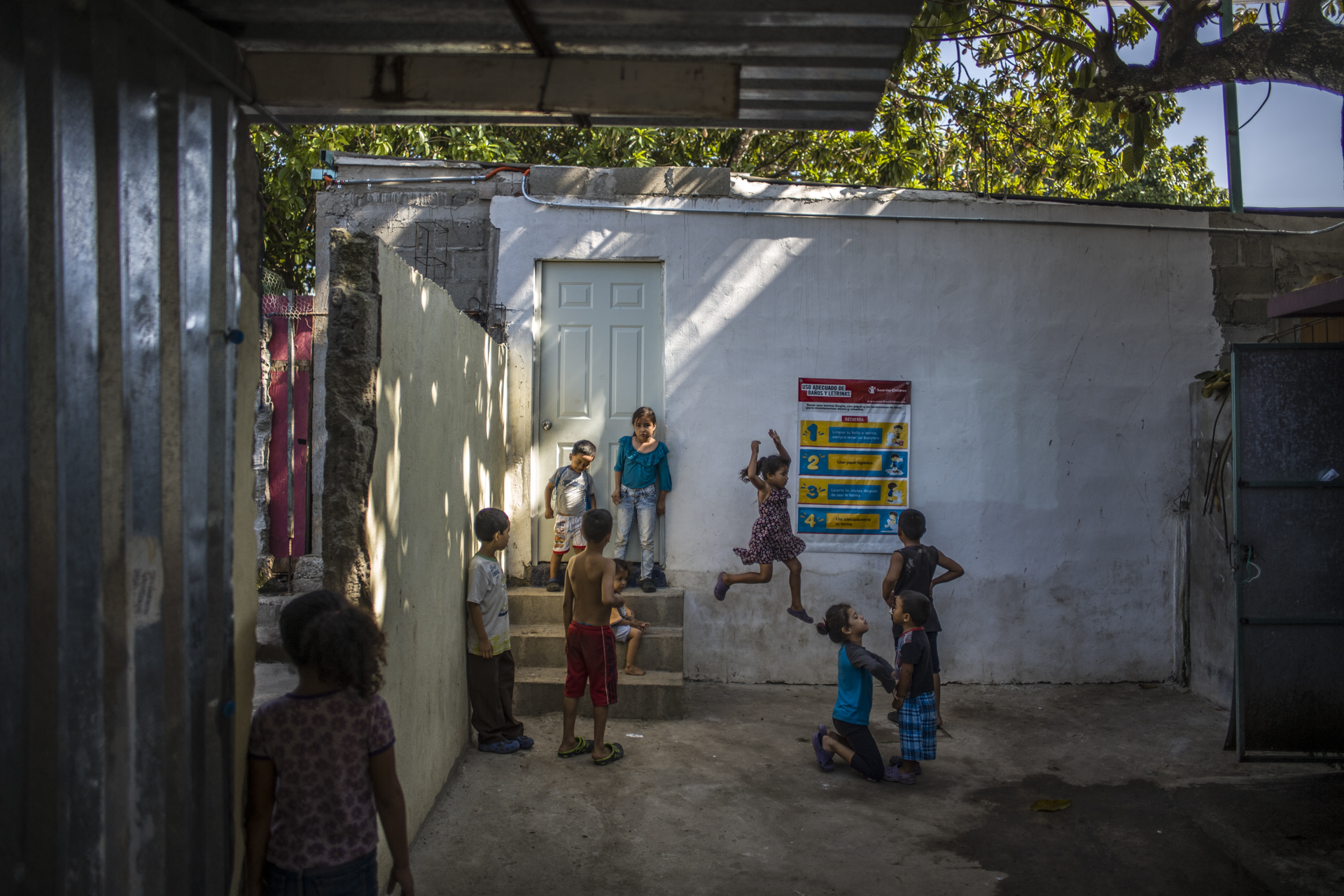
Children play in the San Augustin shelter for migrants, mostly from Honduras. Tapachula, November 27th, 2019. © OLIVIER PAPEGNIES On the road to exile, thousands of people from Honduras, El Salvador or Guatemala are fleeing the multiple violence in Central America to reach the United States in search of a better life. In Tapachula, a city located on the southern border of Mexico, these migrants mix with new nationalities from the African continent. In June 2019, by sealing new agreements aimed at curbing the advance of exiles to the north, Mexico hardened its migration policy under pressure from the United States, turning this gateway city into a prison.
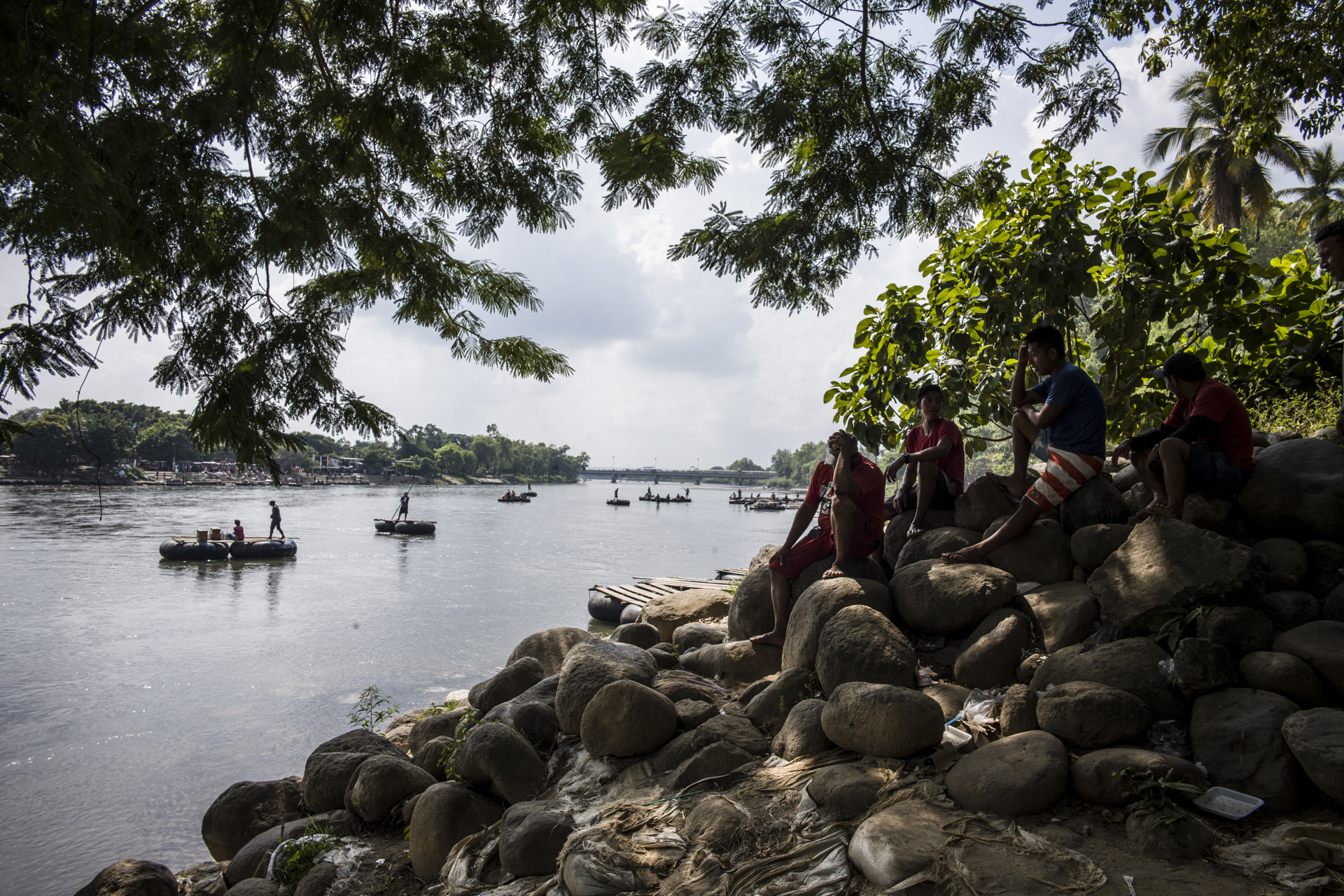
The Suchiate River that separates Guatemala from Mexico is a crossing point for many people. The presence of the military at the border is deterring exiles from crossing. Hidalgo, November 26th, 2019. © OLIVIER PAPEGNIES On the road to exile, thousands of people from Honduras, El Salvador or Guatemala are fleeing the multiple violence in Central America to reach the United States in search of a better life. In Tapachula, a city located on the southern border of Mexico, these migrants mix with new nationalities from the African continent. In June 2019, by sealing new agreements aimed at curbing the advance of exiles to the north, Mexico hardened its migration policy under pressure from the United States, turning this gateway city into a prison.
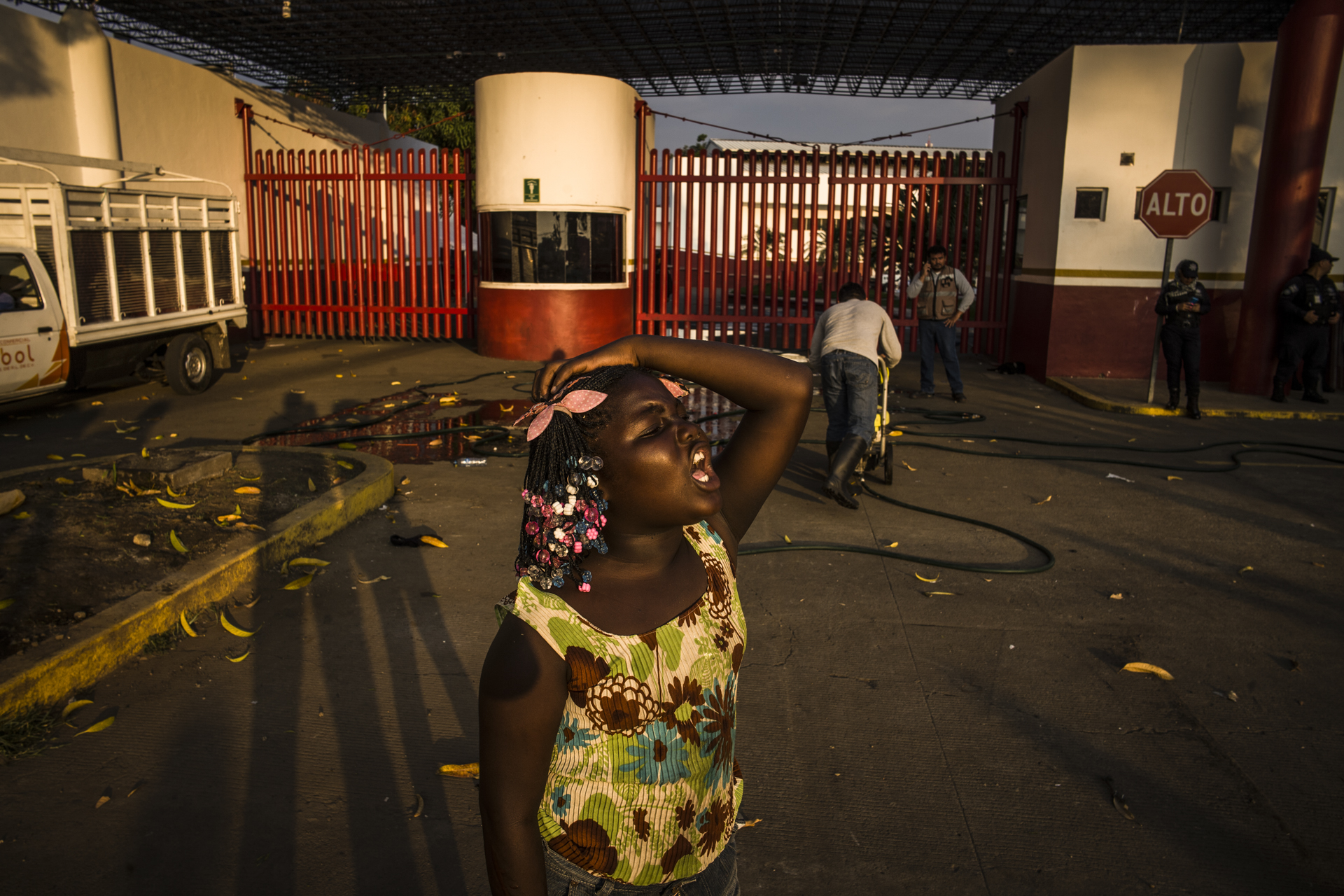
In front of the "Siglo XXI" detention center, hundreds of exiles from the African continent have been living in an encampment for several months while waiting for their status to be regulated. Tapachula, November 27th, 2019. © OLIVIER PAPEGNIES On the road to exile, thousands of people from Honduras, El Salvador or Guatemala are fleeing the multiple violence in Central America to reach the United States in search of a better life. In Tapachula, a city located on the southern border of Mexico, these migrants mix with new nationalities from the African continent. In June 2019, by sealing new agreements aimed at curbing the advance of exiles to the north, Mexico hardened its migration policy under pressure from the United States, turning this gateway city into a prison.
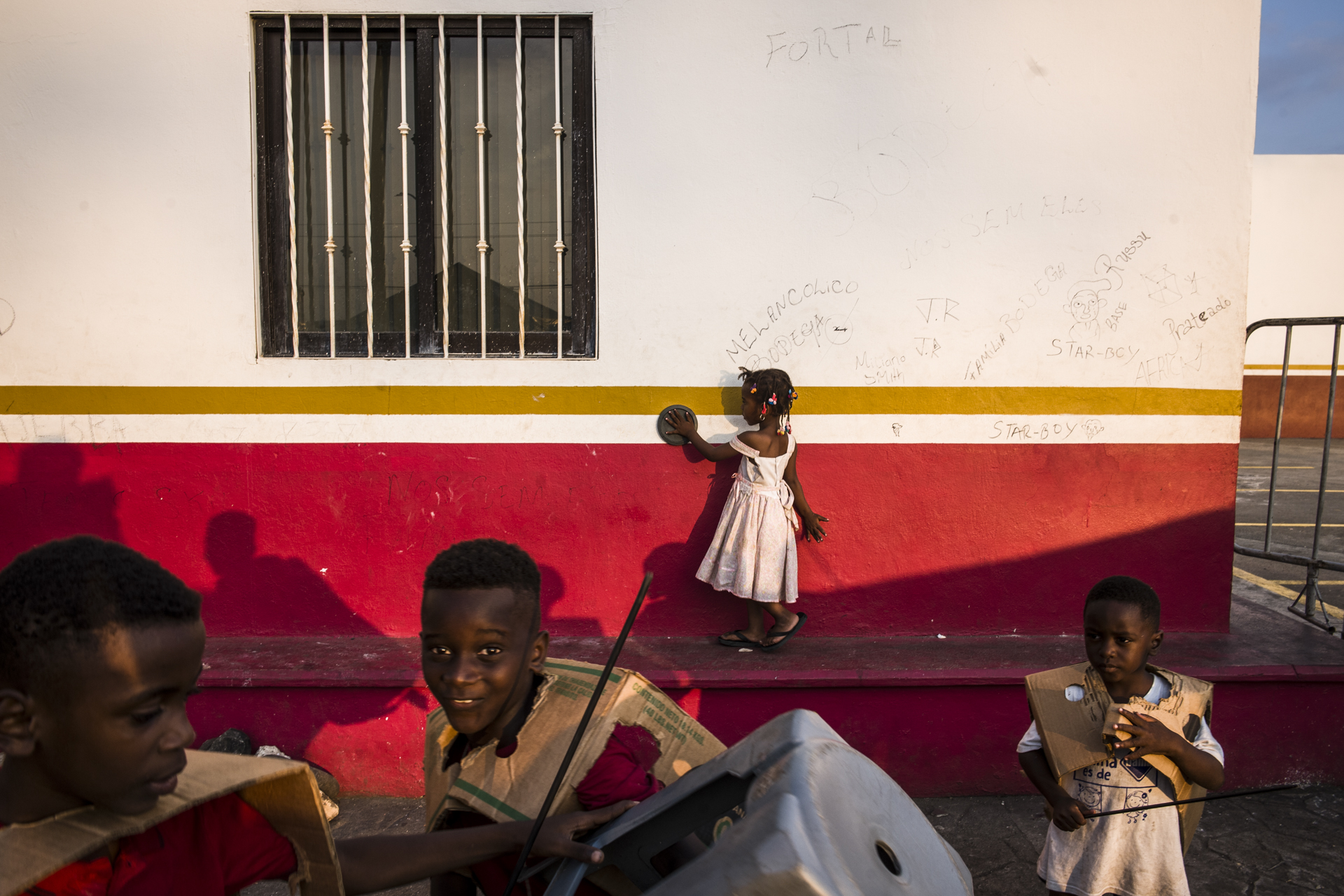
In front of the "Siglo XXI" detention center, hundreds of exiles from the African continent have been living in an encampment for several months while waiting for their status to be regulated. Tapachula, November 27th, 2019. © OLIVIER PAPEGNIES On the road to exile, thousands of people from Honduras, El Salvador or Guatemala are fleeing the multiple violence in Central America to reach the United States in search of a better life. In Tapachula, a city located on the southern border of Mexico, these migrants mix with new nationalities from the African continent. In June 2019, by sealing new agreements aimed at curbing the advance of exiles to the north, Mexico hardened its migration policy under pressure from the United States, turning this gateway city into a prison.
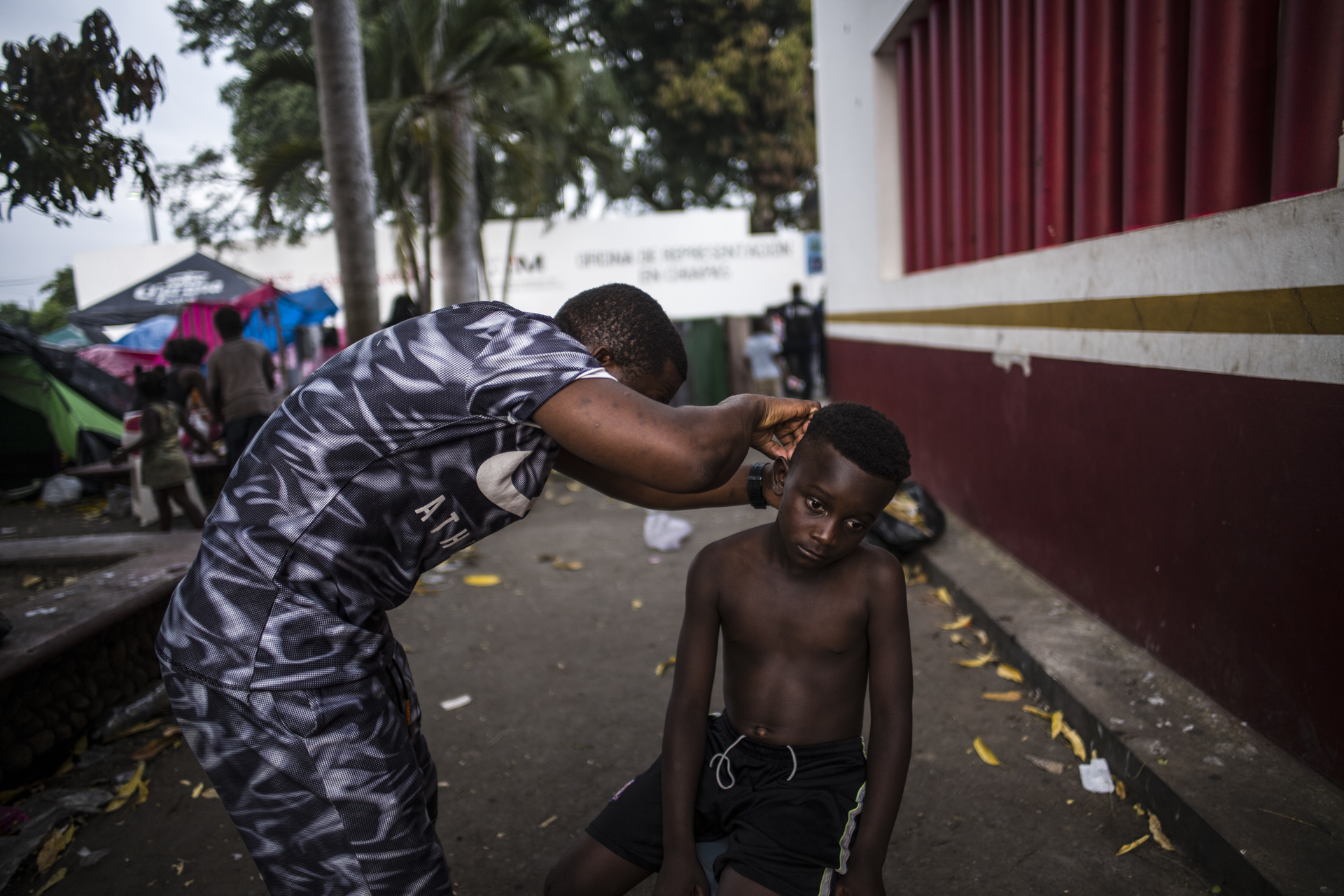
In front of the "Siglo XXI" detention center, hundreds of exiles from the African continent have been living in an encampment for several months while waiting for their status to be regulated. Tapachula, November 26th, 2019. © OLIVIER PAPEGNIES On the road to exile, thousands of people from Honduras, El Salvador or Guatemala are fleeing the multiple violence in Central America to reach the United States in search of a better life. In Tapachula, a city located on the southern border of Mexico, these migrants mix with new nationalities from the African continent. In June 2019, by sealing new agreements aimed at curbing the advance of exiles to the north, Mexico hardened its migration policy under pressure from the United States, turning this gateway city into a prison.
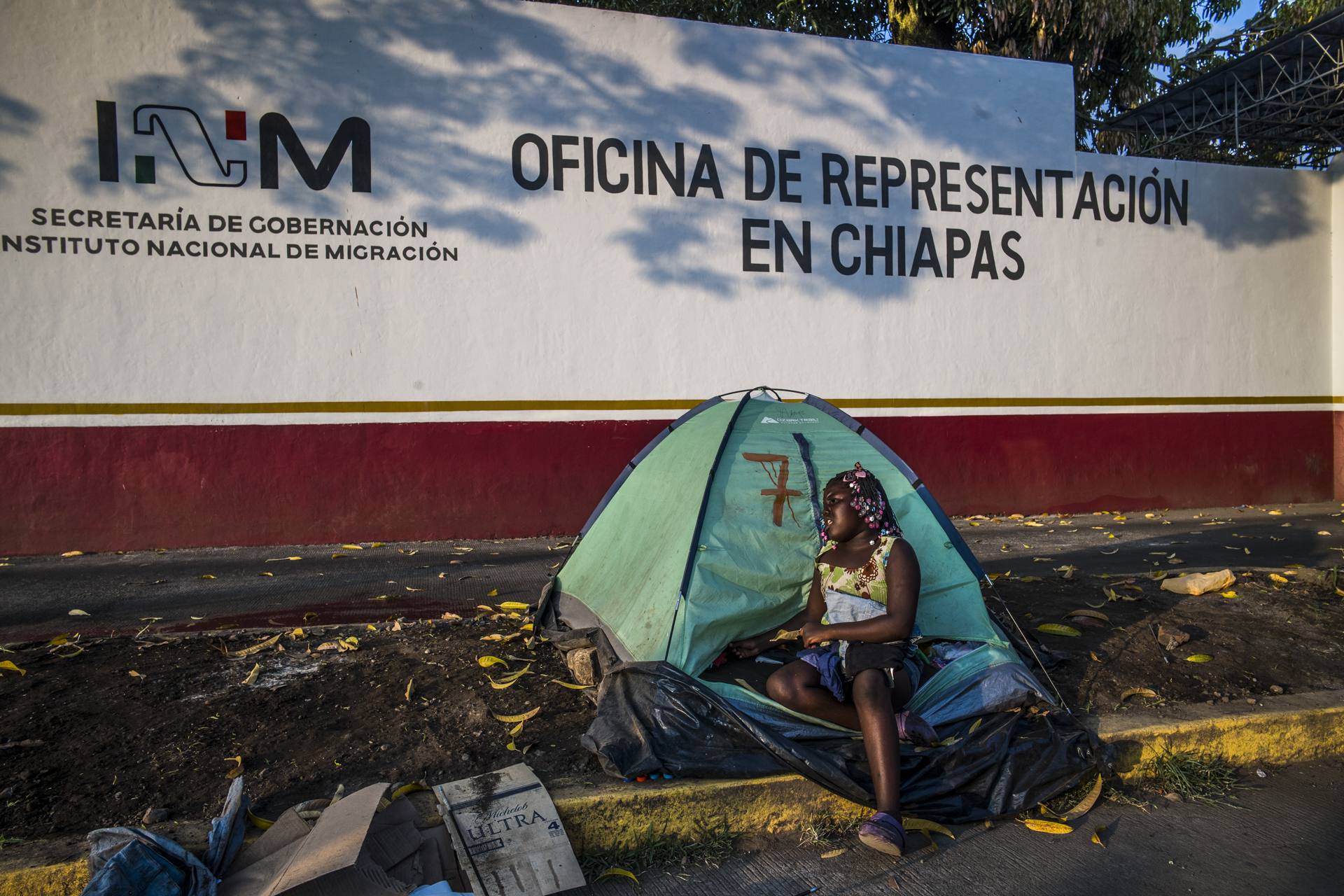
In front of the "Siglo XXI" detention center, hundreds of exiles from the African continent have been living in an encampment for several months while waiting for their status to be regulated. Tapachula, November 27th, 2019. © OLIVIER PAPEGNIES On the road to exile, thousands of people from Honduras, El Salvador or Guatemala are fleeing the multiple violence in Central America to reach the United States in search of a better life. In Tapachula, a city located on the southern border of Mexico, these migrants mix with new nationalities from the African continent. In June 2019, by sealing new agreements aimed at curbing the advance of exiles to the north, Mexico hardened its migration policy under pressure from the United States, turning this gateway city into a prison.
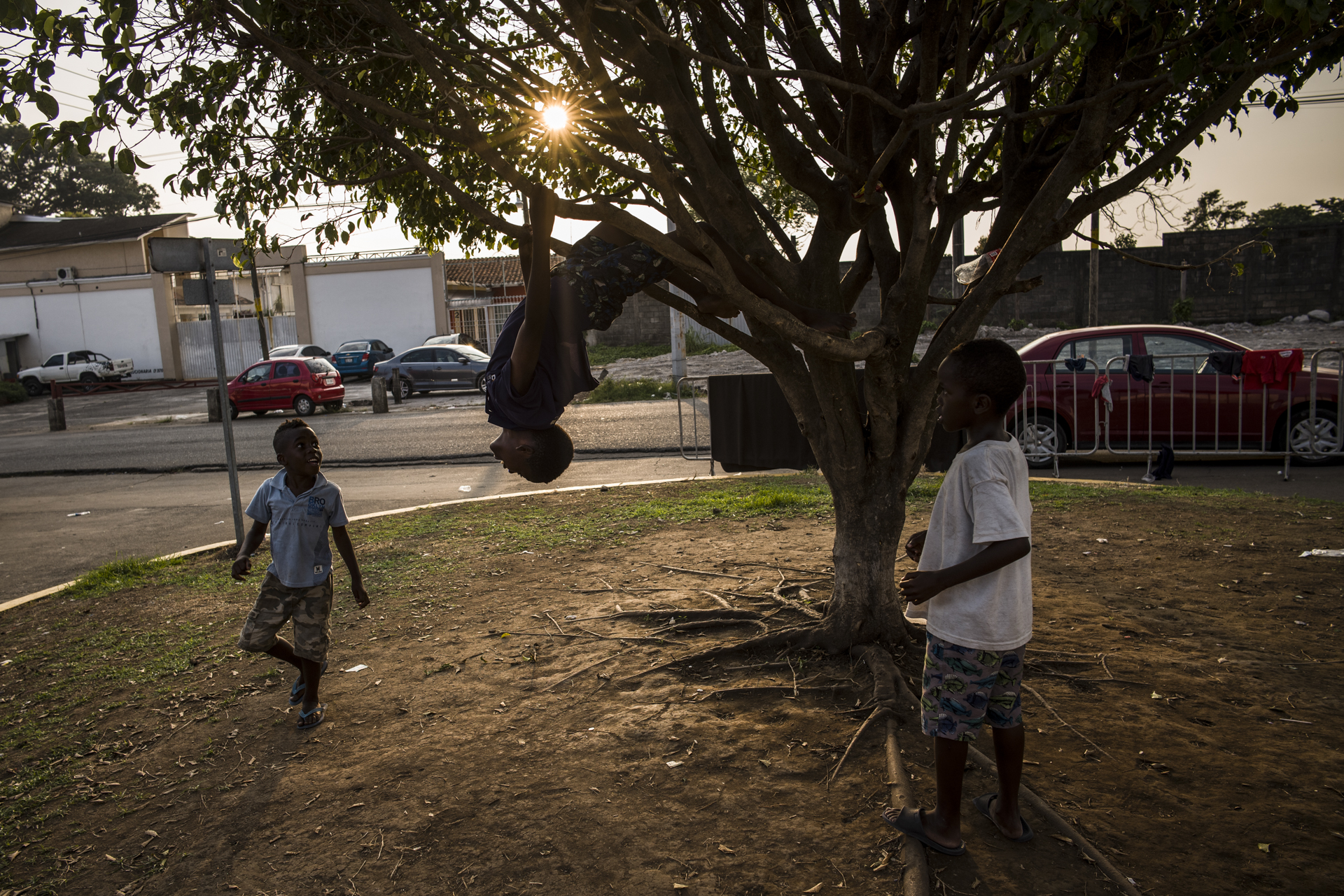
In front of the "Siglo XXI" detention center, hundreds of exiles from the African continent have been living in an encampment for several months while waiting for their status to be regulated. Tapachula, November 26th, 2019. © OLIVIER PAPEGNIES On the road to exile, thousands of people from Honduras, El Salvador or Guatemala are fleeing the multiple violence in Central America to reach the United States in search of a better life. In Tapachula, a city located on the southern border of Mexico, these migrants mix with new nationalities from the African continent. In June 2019, by sealing new agreements aimed at curbing the advance of exiles to the north, Mexico hardened its migration policy under pressure from the United States, turning this gateway city into a prison.
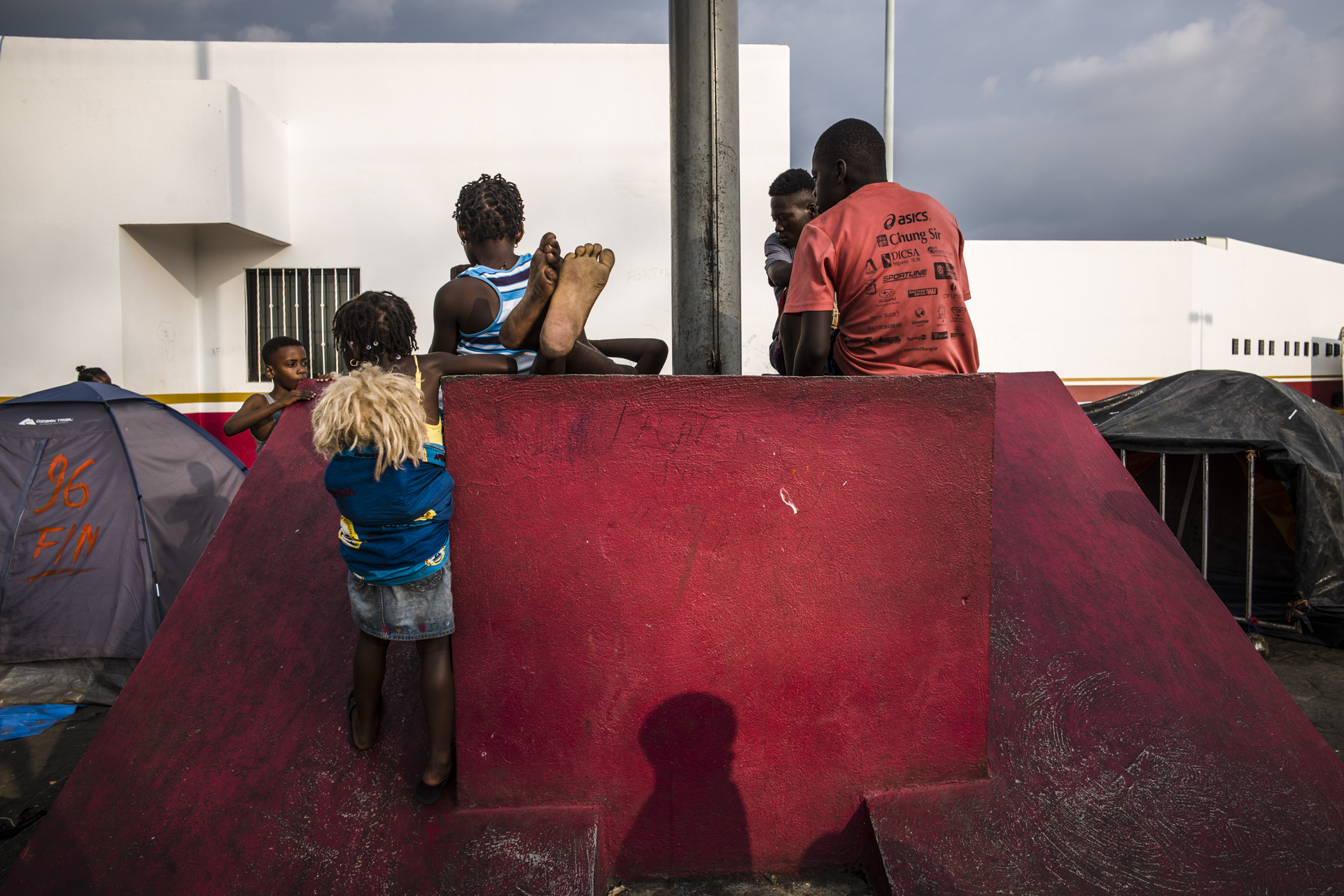
In front of the "Siglo XXI" detention center, hundreds of exiles from the African continent have been living in an encampment for several months while waiting for their status to be regulated. Tapachula, November 26th, 2019. © OLIVIER PAPEGNIES On the road to exile, thousands of people from Honduras, El Salvador or Guatemala are fleeing the multiple violence in Central America to reach the United States in search of a better life. In Tapachula, a city located on the southern border of Mexico, these migrants mix with new nationalities from the African continent. In June 2019, by sealing new agreements aimed at curbing the advance of exiles to the north, Mexico hardened its migration policy under pressure from the United States, turning this gateway city into a prison.
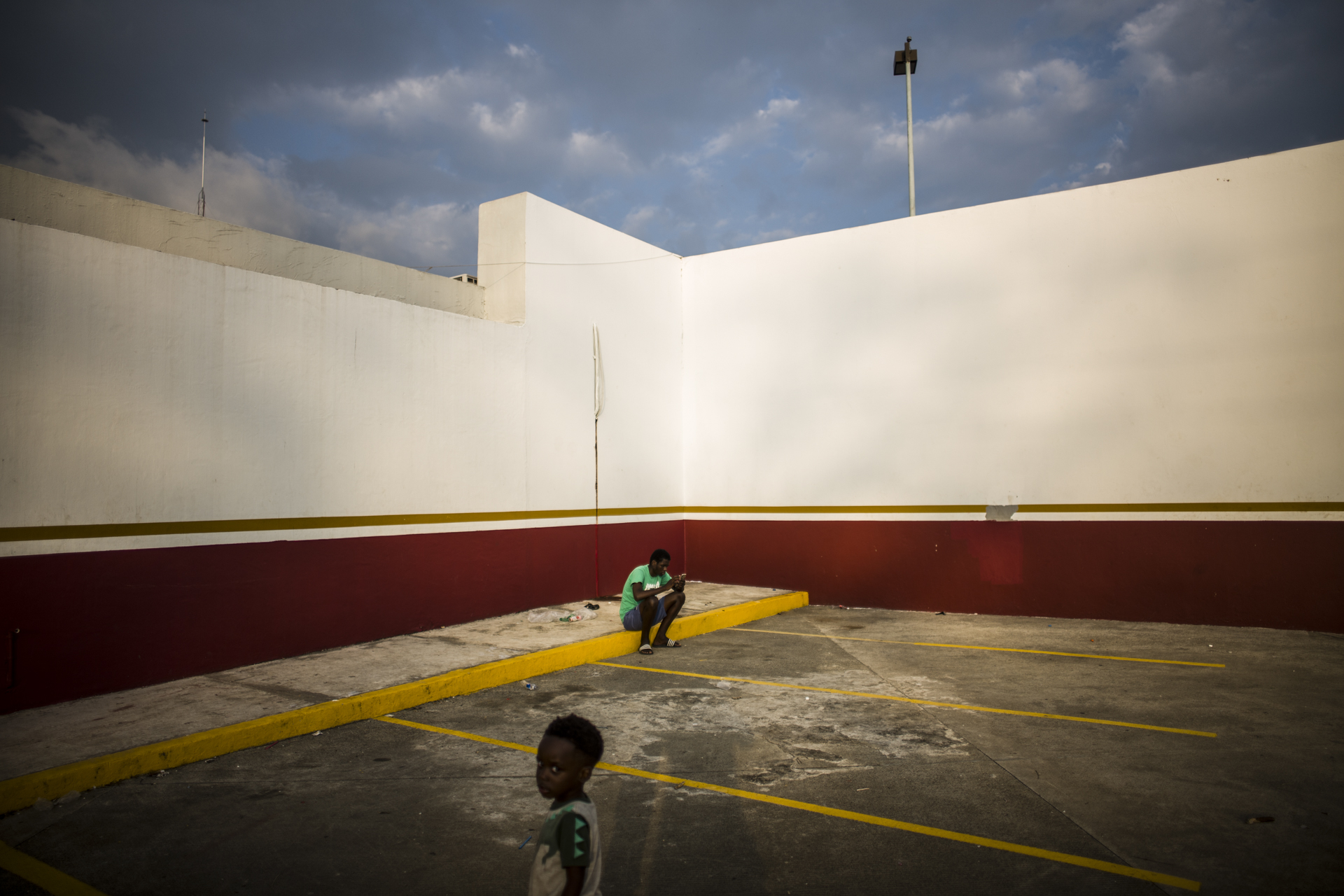
In front of the "Siglo XXI" detention center, hundreds of exiles from the African continent have been living in an encampment for several months while waiting for their status to be regulated. Tapachula, November 27th, 2019. © OLIVIER PAPEGNIES On the road to exile, thousands of people from Honduras, El Salvador or Guatemala are fleeing the multiple violence in Central America to reach the United States in search of a better life. In Tapachula, a city located on the southern border of Mexico, these migrants mix with new nationalities from the African continent. In June 2019, by sealing new agreements aimed at curbing the advance of exiles to the north, Mexico hardened its migration policy under pressure from the United States, turning this gateway city into a prison.
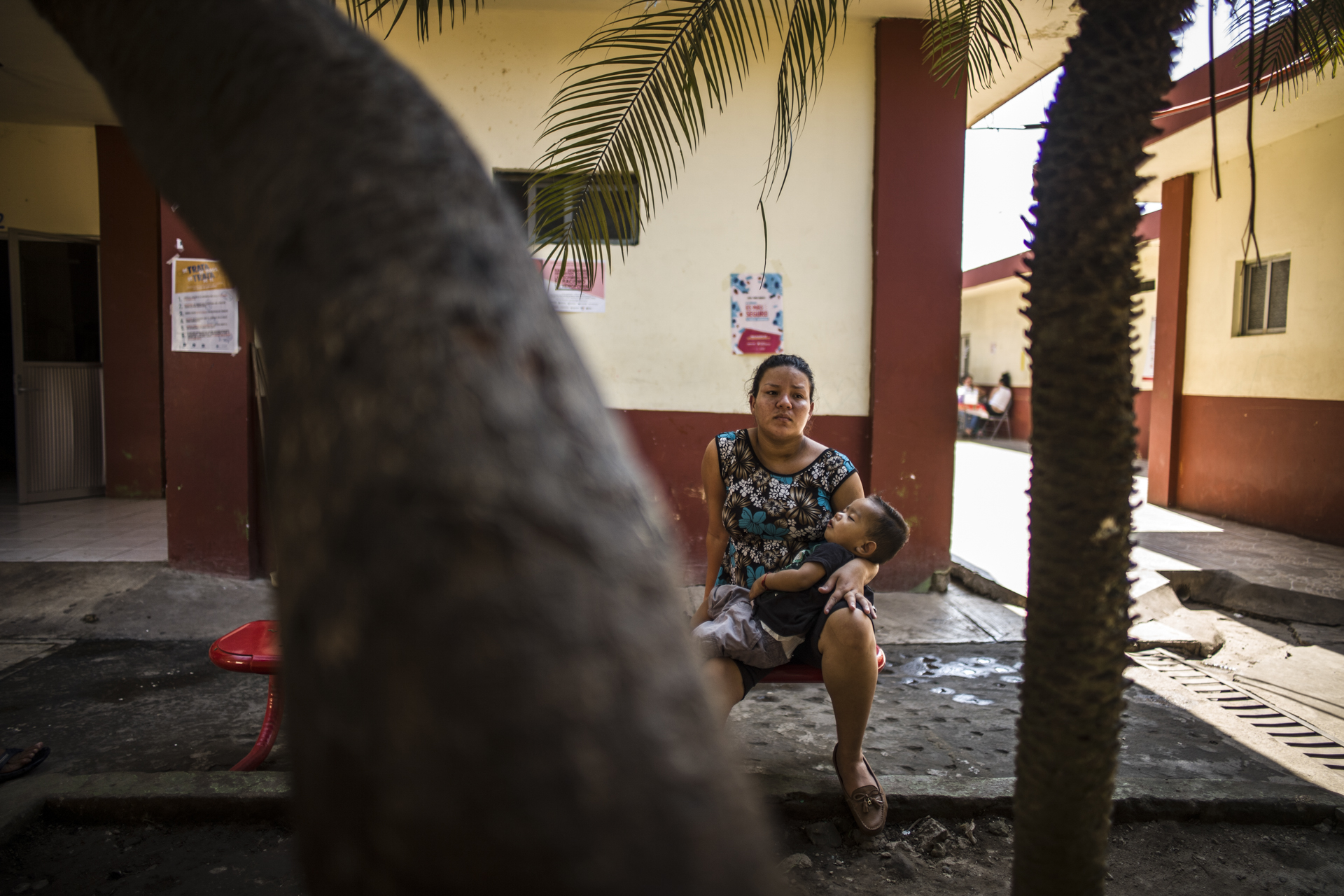
A mother and his son in the San Augustin shelter for migrants, mostly from Honduras. Tapachula, November 27th, 2019. © OLIVIER PAPEGNIES On the road to exile, thousands of people from Honduras, El Salvador or Guatemala are fleeing the multiple violence in Central America to reach the United States in search of a better life. In Tapachula, a city located on the southern border of Mexico, these migrants mix with new nationalities from the African continent. In June 2019, by sealing new agreements aimed at curbing the advance of exiles to the north, Mexico hardened its migration policy under pressure from the United States, turning this gateway city into a prison.
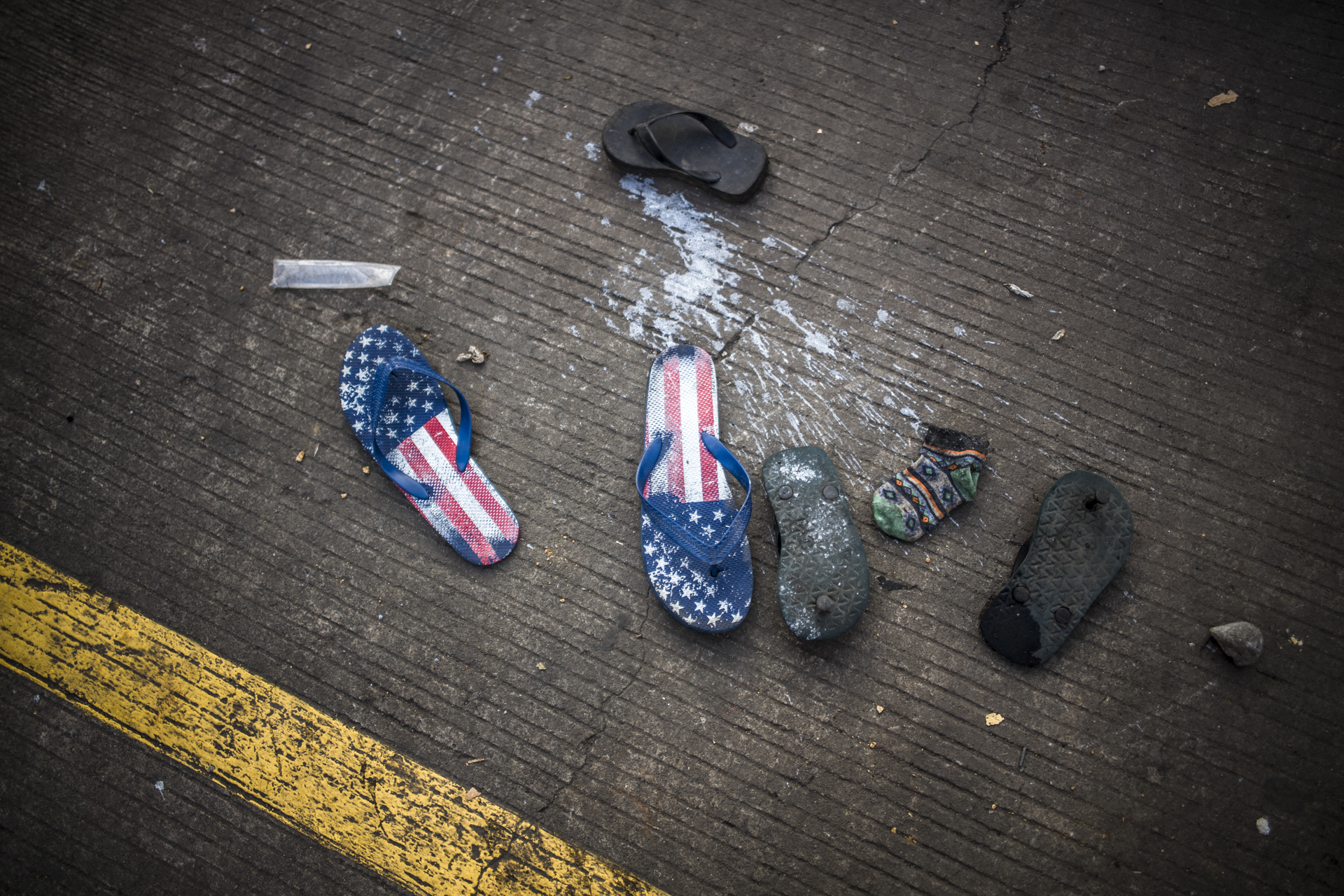
Since July 2019, due to changes in Mexican migration policies resulting from the agreement with the United States, thousands of African (estimated between 3,500 and 5,000) and Haitian migrants have been stranded in the city of Tapachula. November 26th, 2019. © OLIVIER PAPEGNIES On the road to exile, thousands of people from Honduras, El Salvador or Guatemala are fleeing the multiple violence in Central America to reach the United States in search of a better life. In Tapachula, a city located on the southern border of Mexico, these migrants mix with new nationalities from the African continent. In June 2019, by sealing new agreements aimed at curbing the advance of exiles to the north, Mexico hardened its migration policy under pressure from the United States, turning this gateway city into a prison.
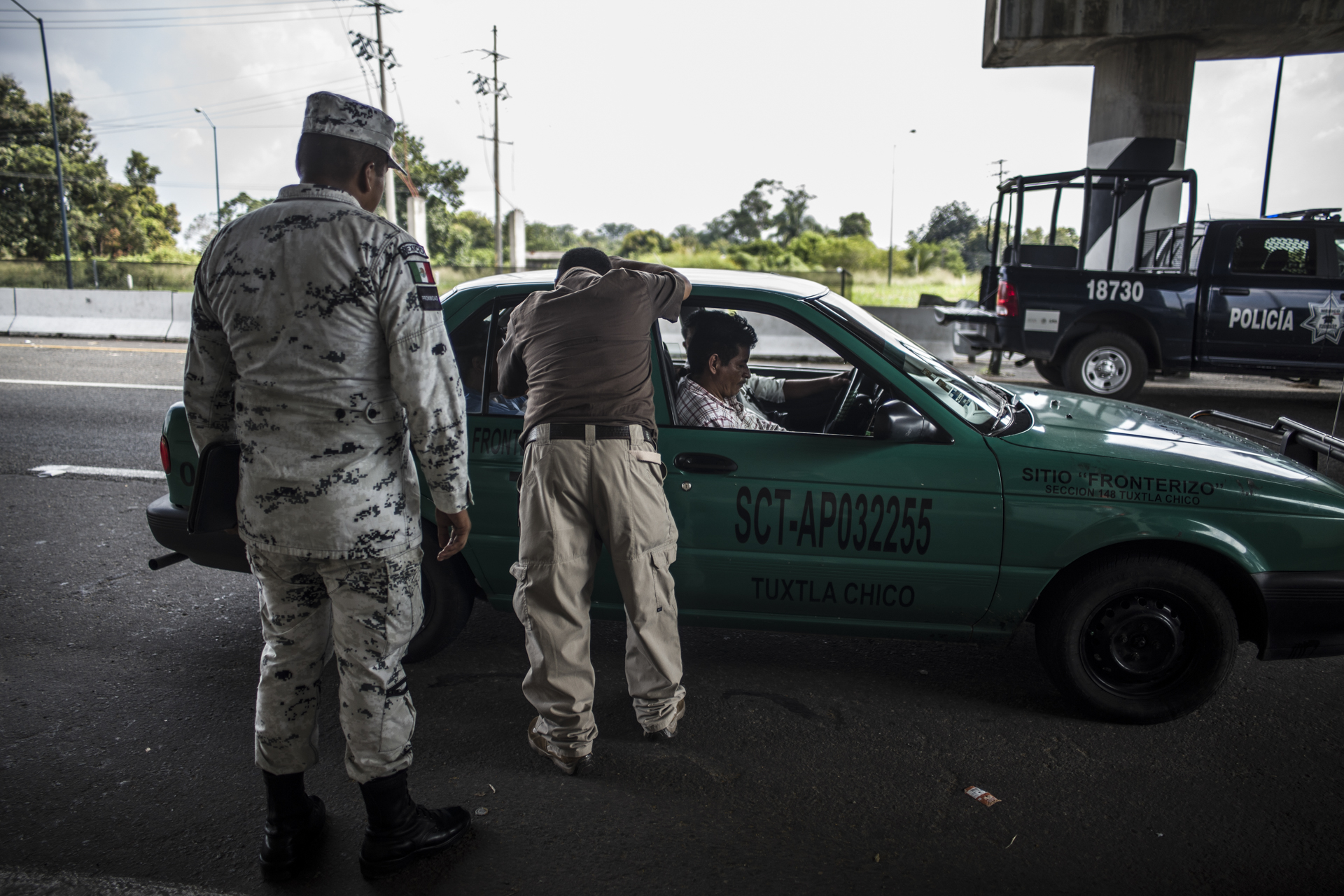
Police controls are daily between the city of Hidalgo, where the Suchiate River separates Guatemala from Mexico, and the city of Tapachula to limit the arrival of migrants. November 26th, 2019. © OLIVIER PAPEGNIES On the road to exile, thousands of people from Honduras, El Salvador or Guatemala are fleeing the multiple violence in Central America to reach the United States in search of a better life. In Tapachula, a city located on the southern border of Mexico, these migrants mix with new nationalities from the African continent. In June 2019, by sealing new agreements aimed at curbing the advance of exiles to the north, Mexico hardened its migration policy under pressure from the United States, turning this gateway city into a prison.
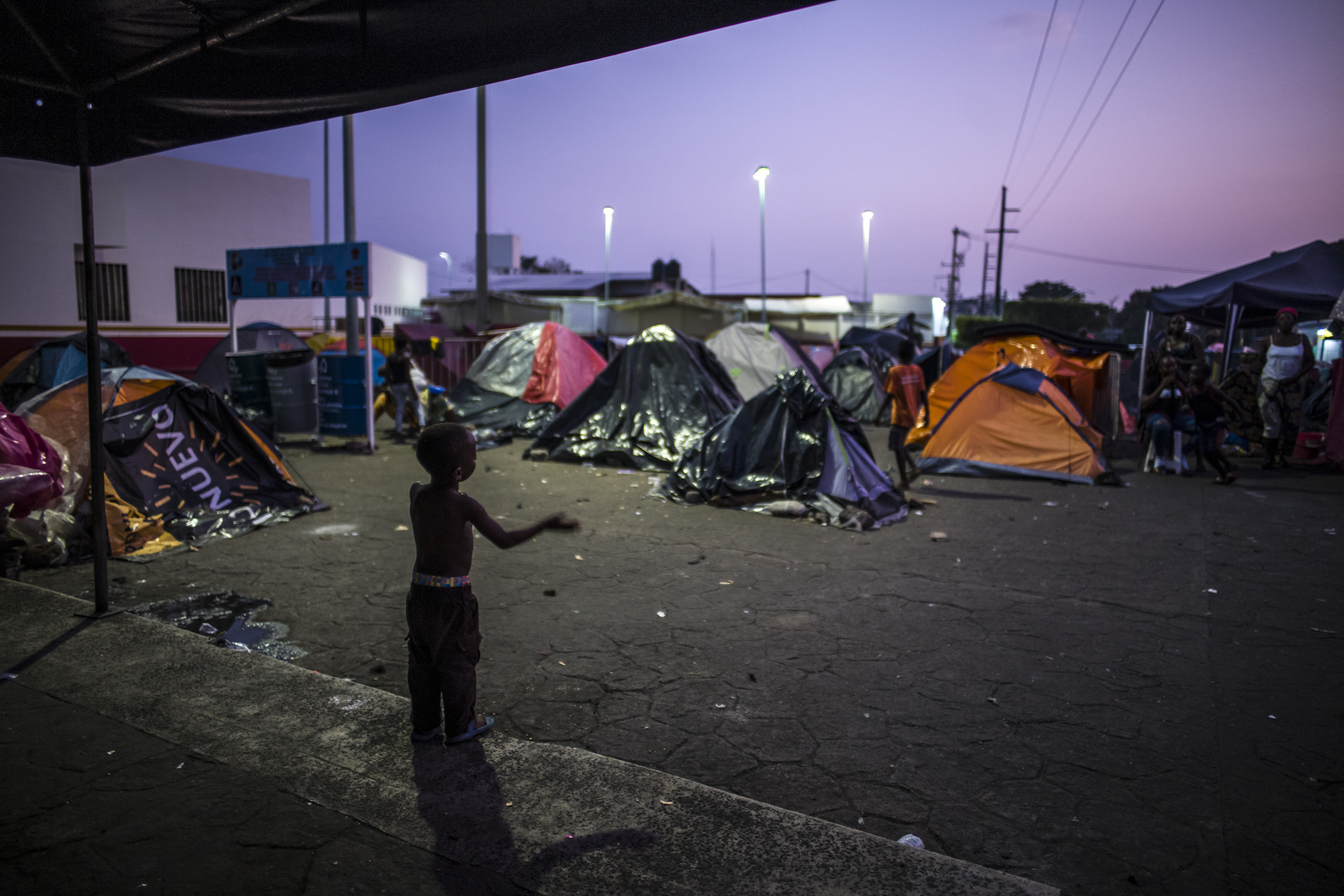
Men, families, single women with or without children, unaccompanied minors who, after having experienced dangerous migratory routes, find themselves in the streets of Tapachula, in tents, or even in the open air, in the heat or the rain, because the capacity of the shelters is totally exceeded. Tapachula, November 26th, 2019. © OLIVIER PAPEGNIES On the road to exile, thousands of people from Honduras, El Salvador or Guatemala are fleeing the multiple violence in Central America to reach the United States in search of a better life. In Tapachula, a city located on the southern border of Mexico, these migrants mix with new nationalities from the African continent. In June 2019, by sealing new agreements aimed at curbing the advance of exiles to the north, Mexico hardened its migration policy under pressure from the United States, turning this gateway city into a prison.
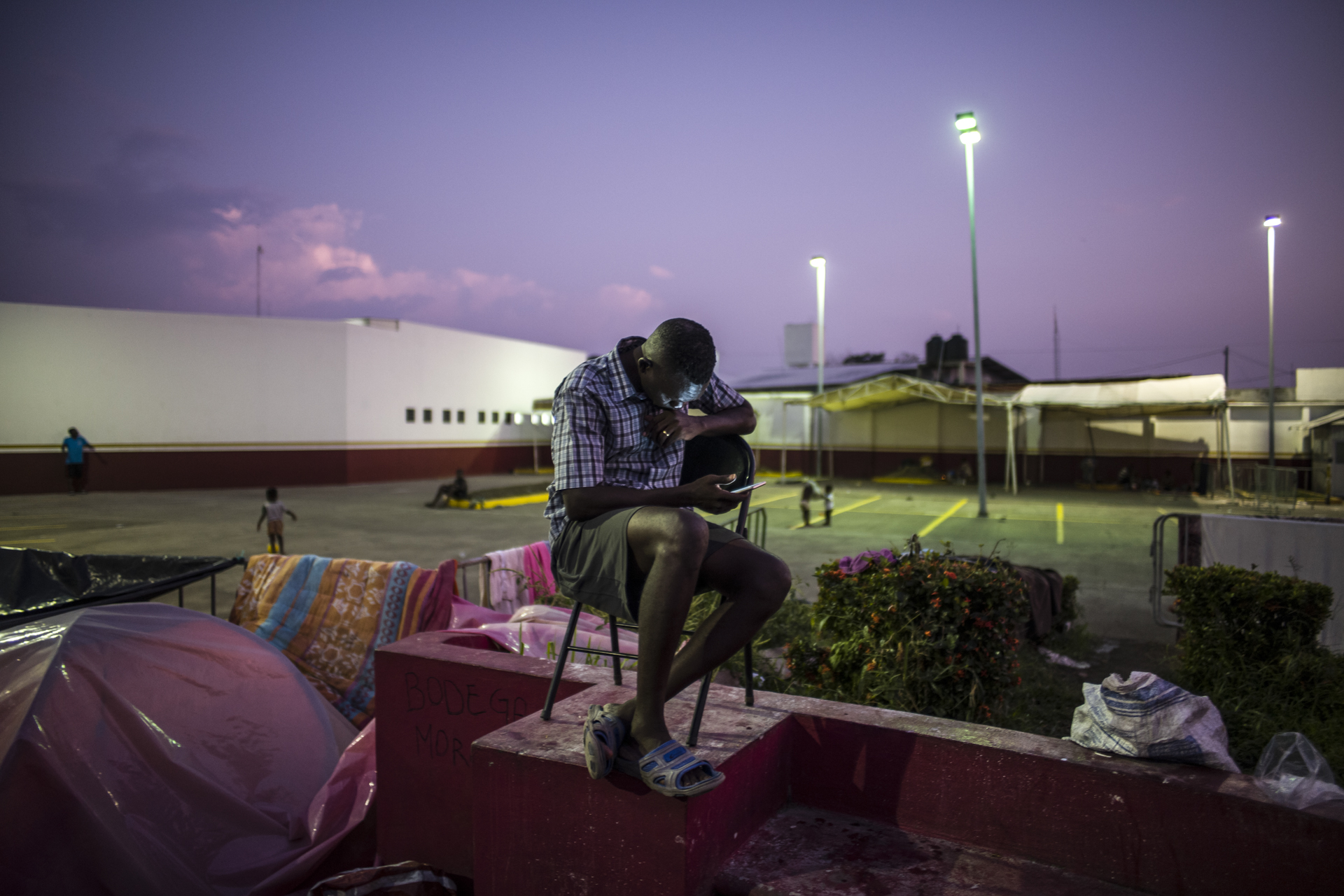
In front of the "Siglo XXI" detention center, hundreds of exiles from the African continent have been living in an encampment for several months while waiting for their status to be regulated. Tapachula, November 25th, 2019. © OLIVIER PAPEGNIES On the road to exile, thousands of people from Honduras, El Salvador or Guatemala are fleeing the multiple violence in Central America to reach the United States in search of a better life. In Tapachula, a city located on the southern border of Mexico, these migrants mix with new nationalities from the African continent. In June 2019, by sealing new agreements aimed at curbing the advance of exiles to the north, Mexico hardened its migration policy under pressure from the United States, turning this gateway city into a prison.
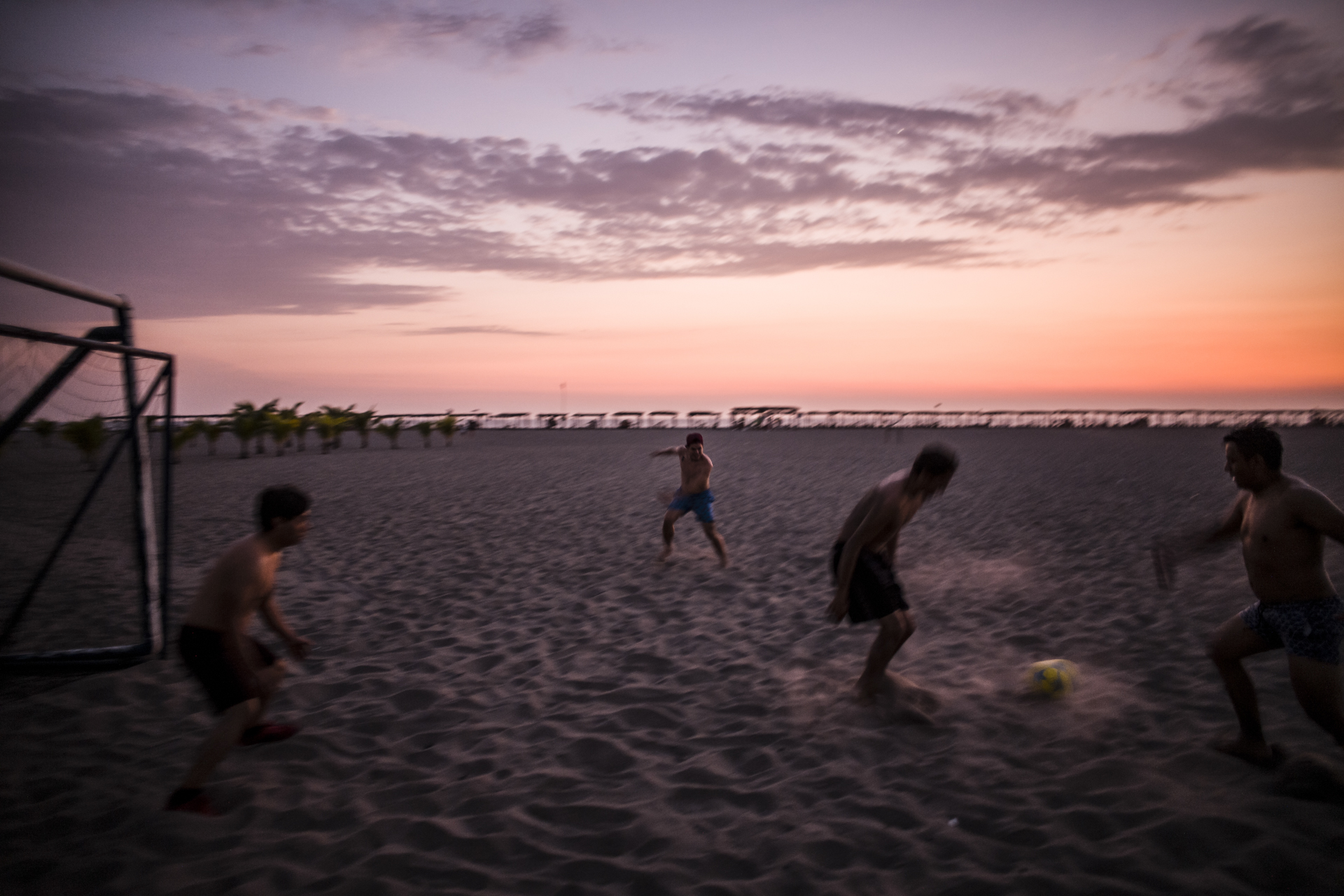
Moment of relaxation for some who come to play soccer on the beach of Tapachula. November 24th, 2019. © OLIVIER PAPEGNIES On the road to exile, thousands of people from Honduras, El Salvador or Guatemala are fleeing the multiple violence in Central America to reach the United States in search of a better life. In Tapachula, a city located on the southern border of Mexico, these migrants mix with new nationalities from the African continent. In June 2019, by sealing new agreements aimed at curbing the advance of exiles to the north, Mexico hardened its migration policy under pressure from the United States, turning this gateway city into a prison.
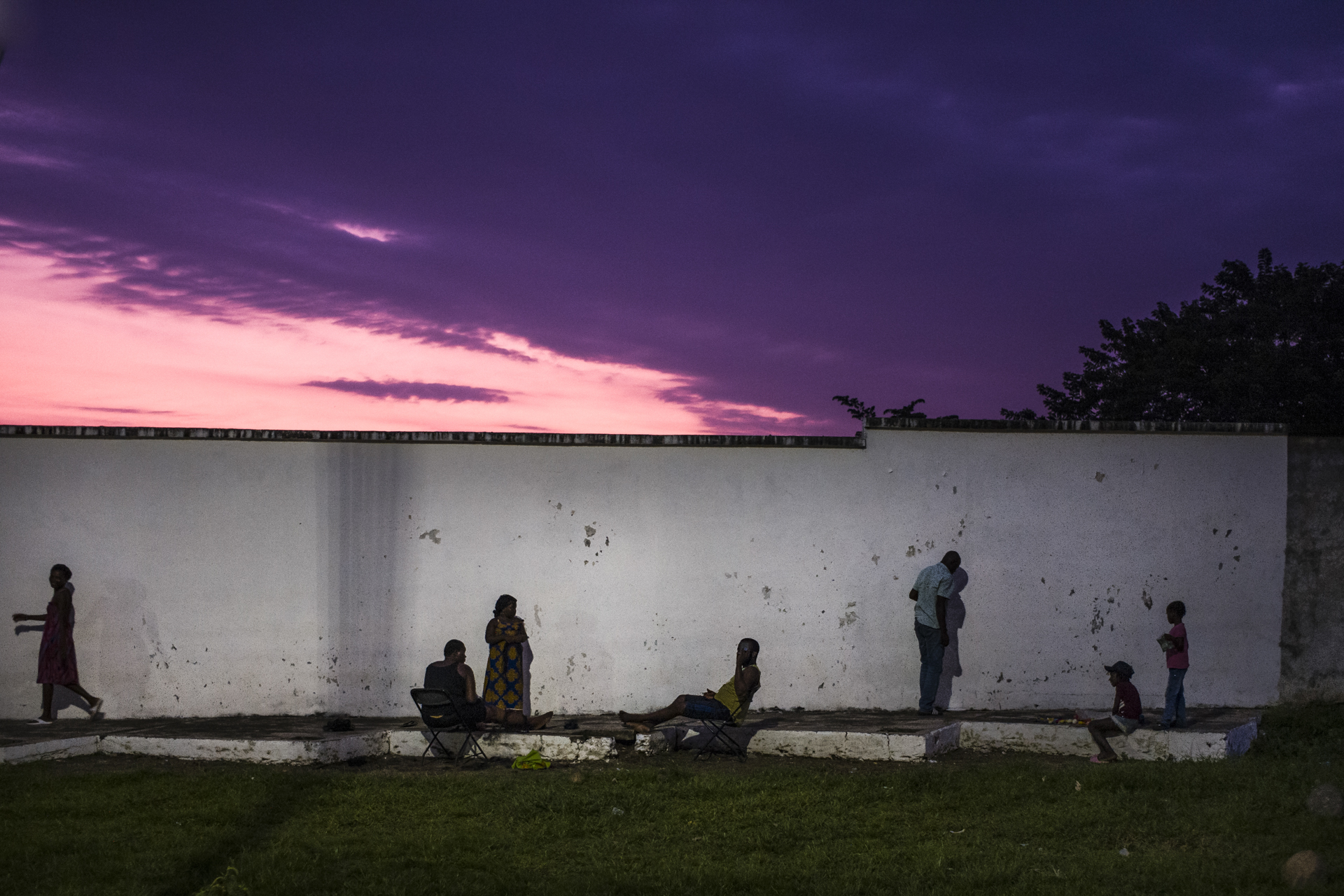
In front of the "Siglo XXI" detention center, hundreds of exiles from the African continent have been living in an encampment for several months while waiting for their status to be regulated. Tapachula, November 27th, 2019. © OLIVIER PAPEGNIES On the road to exile, thousands of people from Honduras, El Salvador or Guatemala are fleeing the multiple violence in Central America to reach the United States in search of a better life. In Tapachula, a city located on the southern border of Mexico, these migrants mix with new nationalities from the African continent. In June 2019, by sealing new agreements aimed at curbing the advance of exiles to the north, Mexico hardened its migration policy under pressure from the United States, turning this gateway city into a prison.
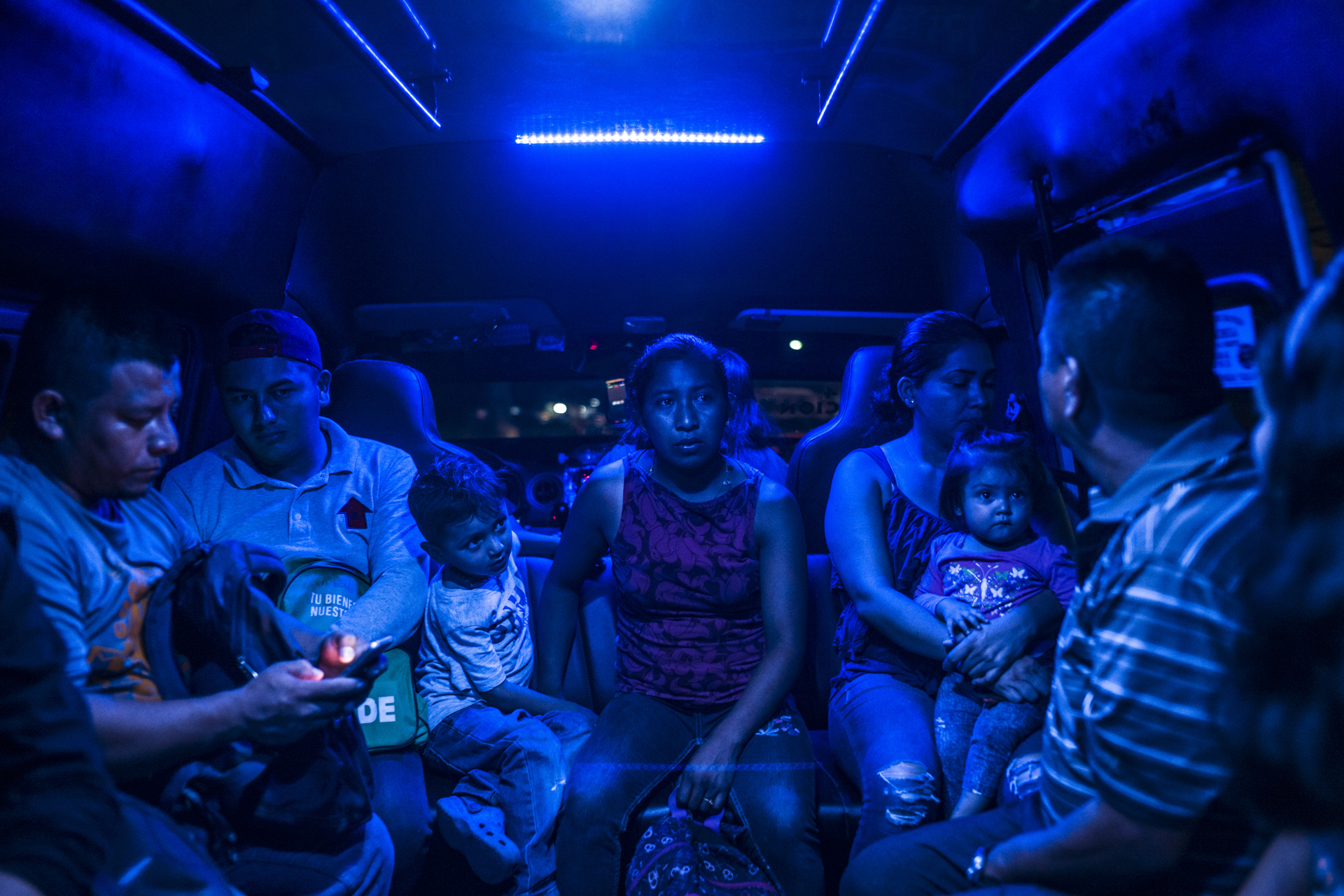
Already repressive migration policies and border controls have been hardened. In 2019, the United States lobbied for and secured agreements with Mexico, Guatemala, El Salvador and Honduras, all aimed at curbing irregular migration and resulting in the closure of migration routes, militarization of borders and, increased deportations and detentions of asylum seekers. The result is the extreme vulnerability of migrants, not only on their migration route, but also during their forced return. Tapachula, November 26th, 2019. © OLIVIER PAPEGNIES On the road to exile, thousands of people from Honduras, El Salvador or Guatemala are fleeing the multiple violence in Central America to reach the United States in search of a better life. In Tapachula, a city located on the southern border of Mexico, these migrants mix with new nationalities from the African continent. In June 2019, by sealing new agreements aimed at curbing the advance of exiles to the north, Mexico hardened its migration policy under pressure from the United States, turning this gateway city into a prison.
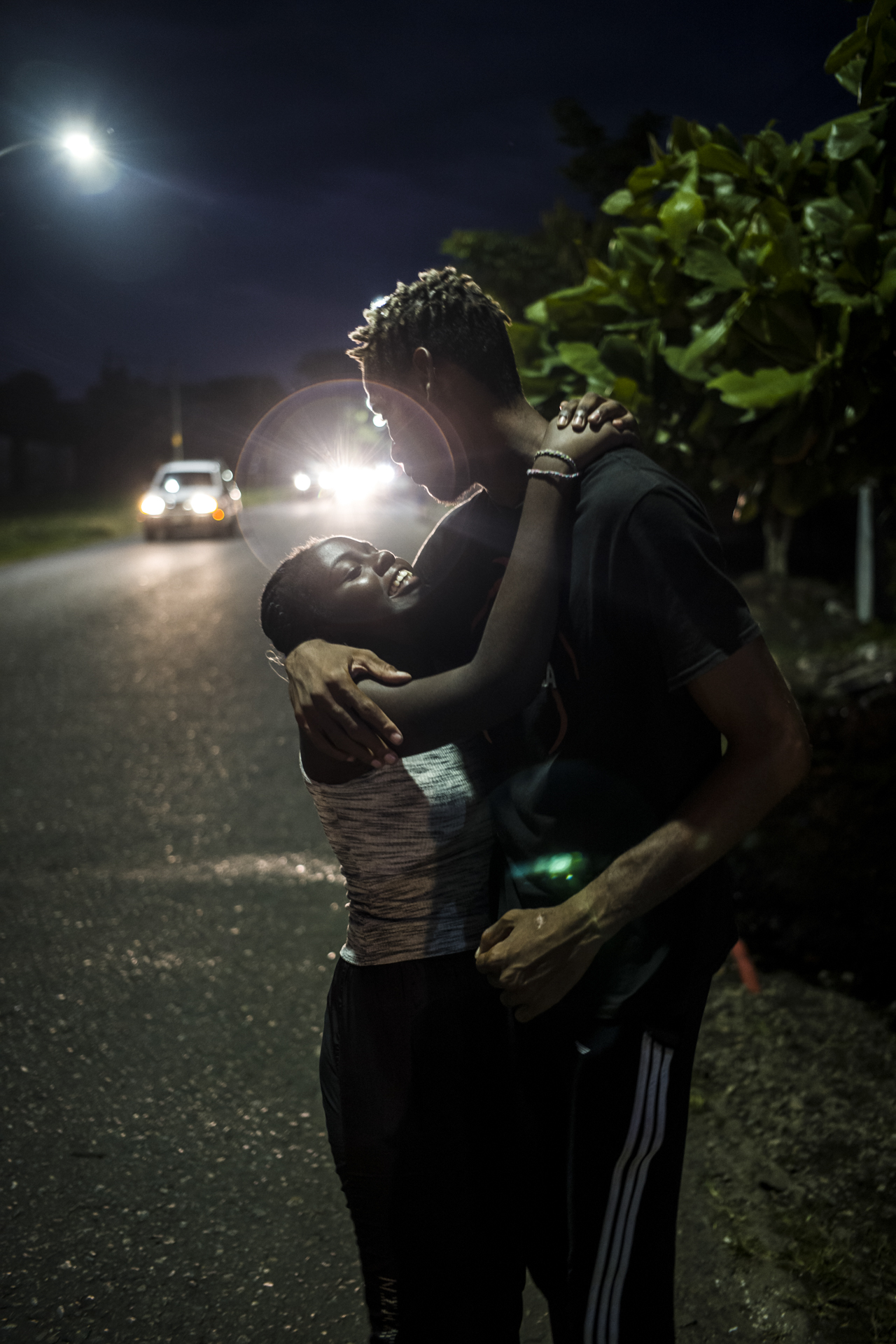
In front of the "Siglo XXI" detention center, hundreds of exiles from the African continent have been living in an encampment for several months while waiting for their status to be regulated. Tapachula, November 26th, 2019. © OLIVIER PAPEGNIES On the road to exile, thousands of people from Honduras, El Salvador or Guatemala are fleeing the multiple violence in Central America to reach the United States in search of a better life. In Tapachula, a city located on the southern border of Mexico, these migrants mix with new nationalities from the African continent. In June 2019, by sealing new agreements aimed at curbing the advance of exiles to the north, Mexico hardened its migration policy under pressure from the United States, turning this gateway city into a prison.
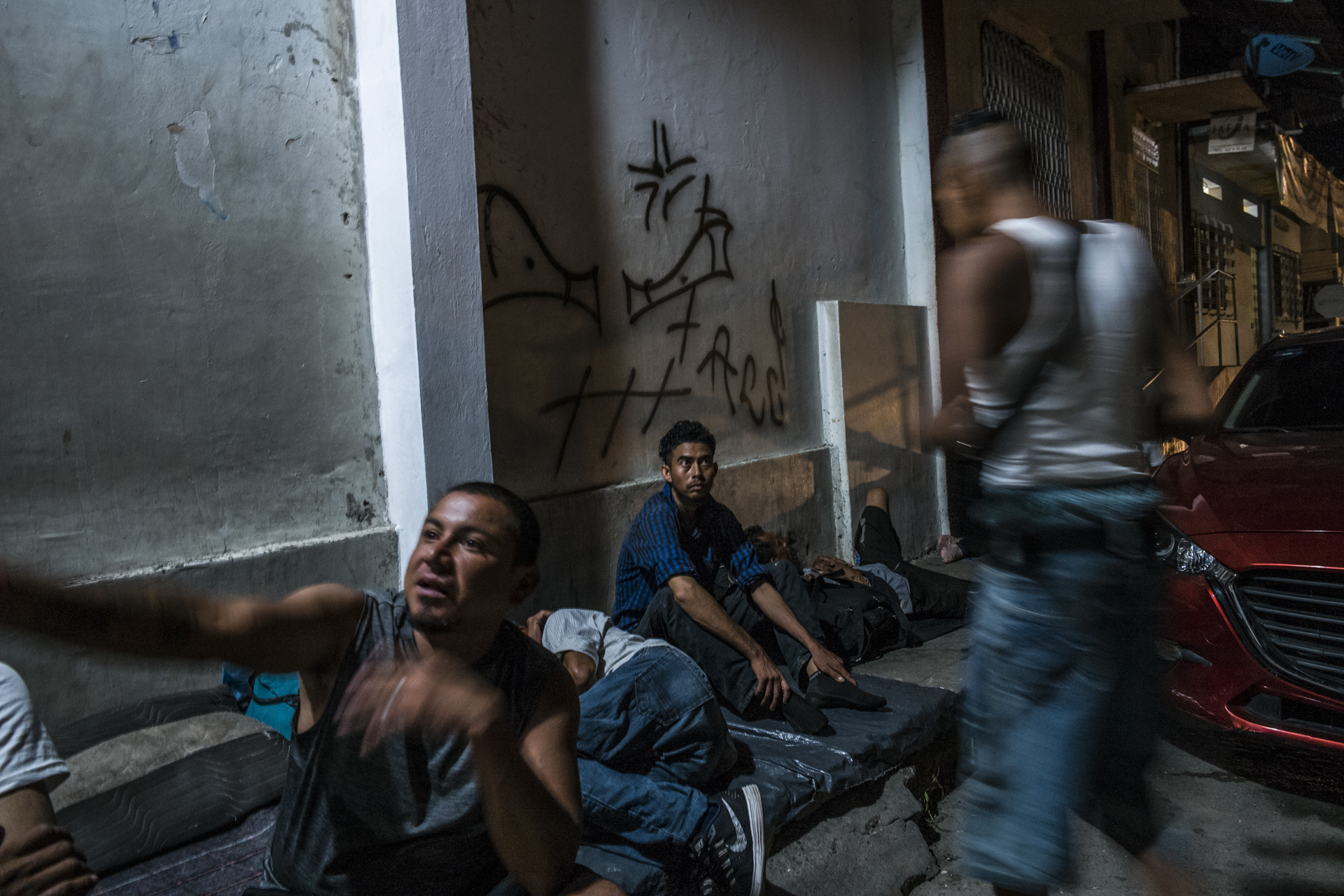
Men, families, single women with or without children, unaccompanied minors who, after having experienced dangerous migratory routes, find themselves in the streets of Tapachula, in tents, or even in the open air, in the heat or the rain, because the capacity of the shelters is totally exceeded. Tapachula, November 26th, 2019. © OLIVIER PAPEGNIES On the road to exile, thousands of people from Honduras, El Salvador or Guatemala are fleeing the multiple violence in Central America to reach the United States in search of a better life. In Tapachula, a city located on the southern border of Mexico, these migrants mix with new nationalities from the African continent. In June 2019, by sealing new agreements aimed at curbing the advance of exiles to the north, Mexico hardened its migration policy under pressure from the United States, turning this gateway city into a prison.
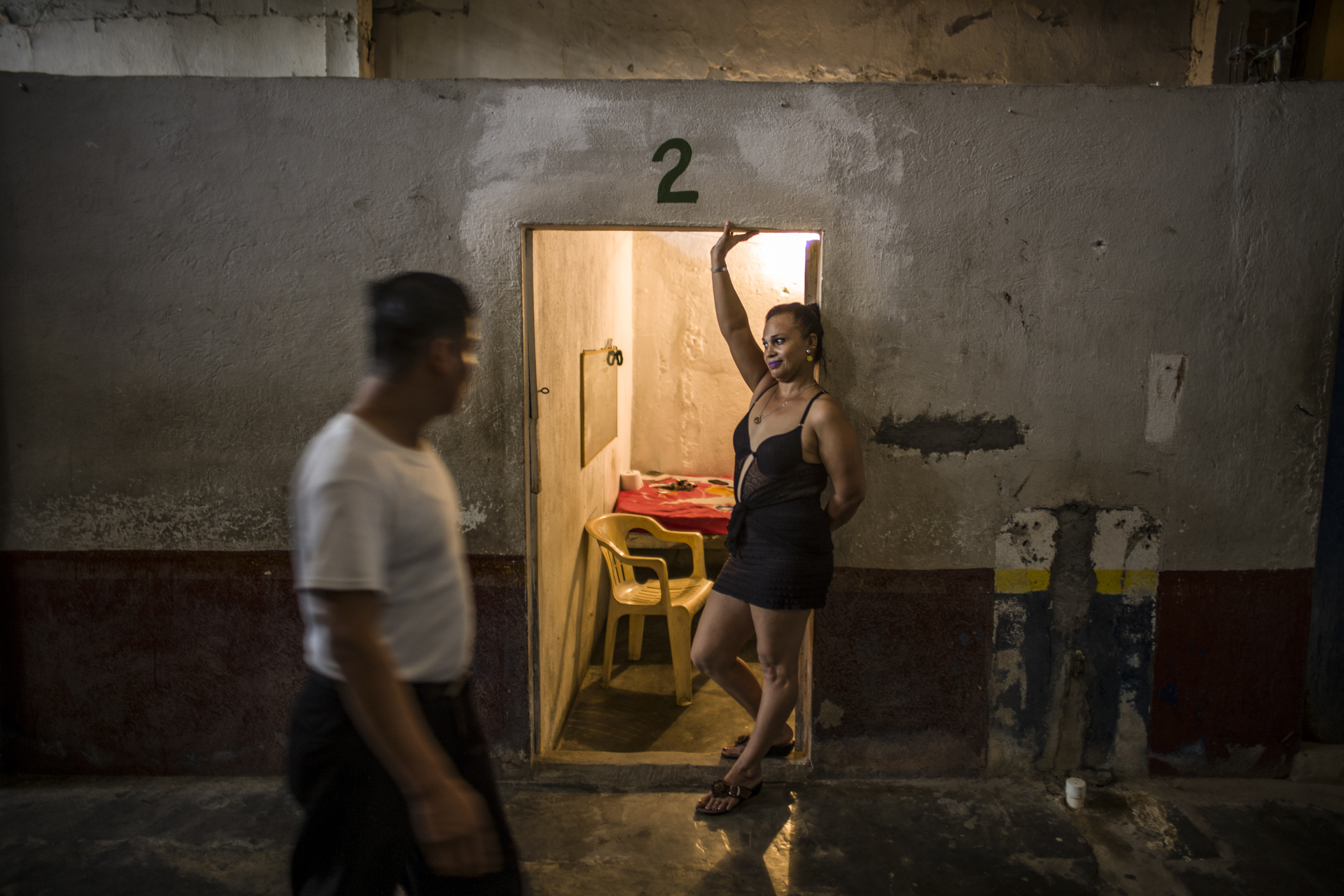
Huixtla, 40 kilometers north of Tapachula. At the end of a narrow corridor are a few cramped cells, a bed, and nothing else. These gloomy rooms are the rooms of the sex workers. They work and live there all day long. Some of them also sleep there. There is not a single water point. Between two clients, they have to run to a small common washbasin at the end of the courtyard. Lime sellers pass by regularly: they are used as an intimate disinfectant. Of course, it is impossible to cook - the host of these places, to whom the women pay rent, makes them carry meal trays. Some women are here under the constraint of a pimp, but they are not in the majority. November 27th, 2019. © OLIVIER PAPEGNIES On the road to exile, thousands of people from Honduras, El Salvador or Guatemala are fleeing the multiple violence in Central America to reach the United States in search of a better life. In Tapachula, a city located on the southern border of Mexico, these migrants mix with new nationalities from the African continent. In June 2019, by sealing new agreements aimed at curbing the advance of exiles to the north, Mexico hardened its migration policy under pressure from the United States, turning this gateway city into a prison.
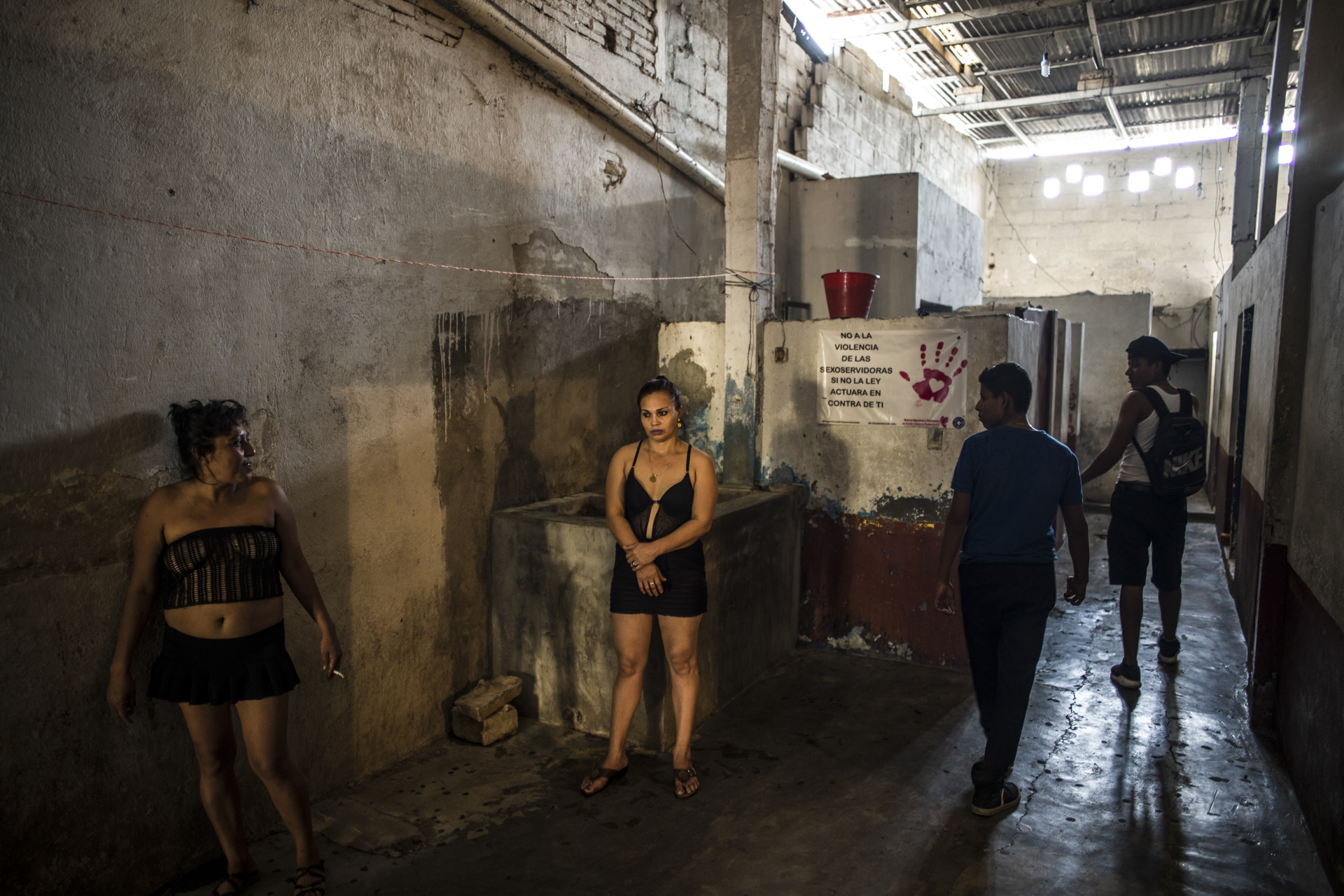
Huixtla, 40 kilometers north of Tapachula. At the end of a narrow corridor are a few cramped cells, a bed, and nothing else. These gloomy rooms are the rooms of the sex workers. They work and live there all day long. Some of them also sleep there. There is not a single water point. Between two clients, they have to run to a small common washbasin at the end of the courtyard. Lime sellers pass by regularly: they are used as an intimate disinfectant. Of course, it is impossible to cook - the host of these places, to whom the women pay rent, makes them carry meal trays. Some women are here under the constraint of a pimp, but they are not in the majority. November 27th, 2019. © OLIVIER PAPEGNIES On the road to exile, thousands of people from Honduras, El Salvador or Guatemala are fleeing the multiple violence in Central America to reach the United States in search of a better life. In Tapachula, a city located on the southern border of Mexico, these migrants mix with new nationalities from the African continent. In June 2019, by sealing new agreements aimed at curbing the advance of exiles to the north, Mexico hardened its migration policy under pressure from the United States, turning this gateway city into a prison.
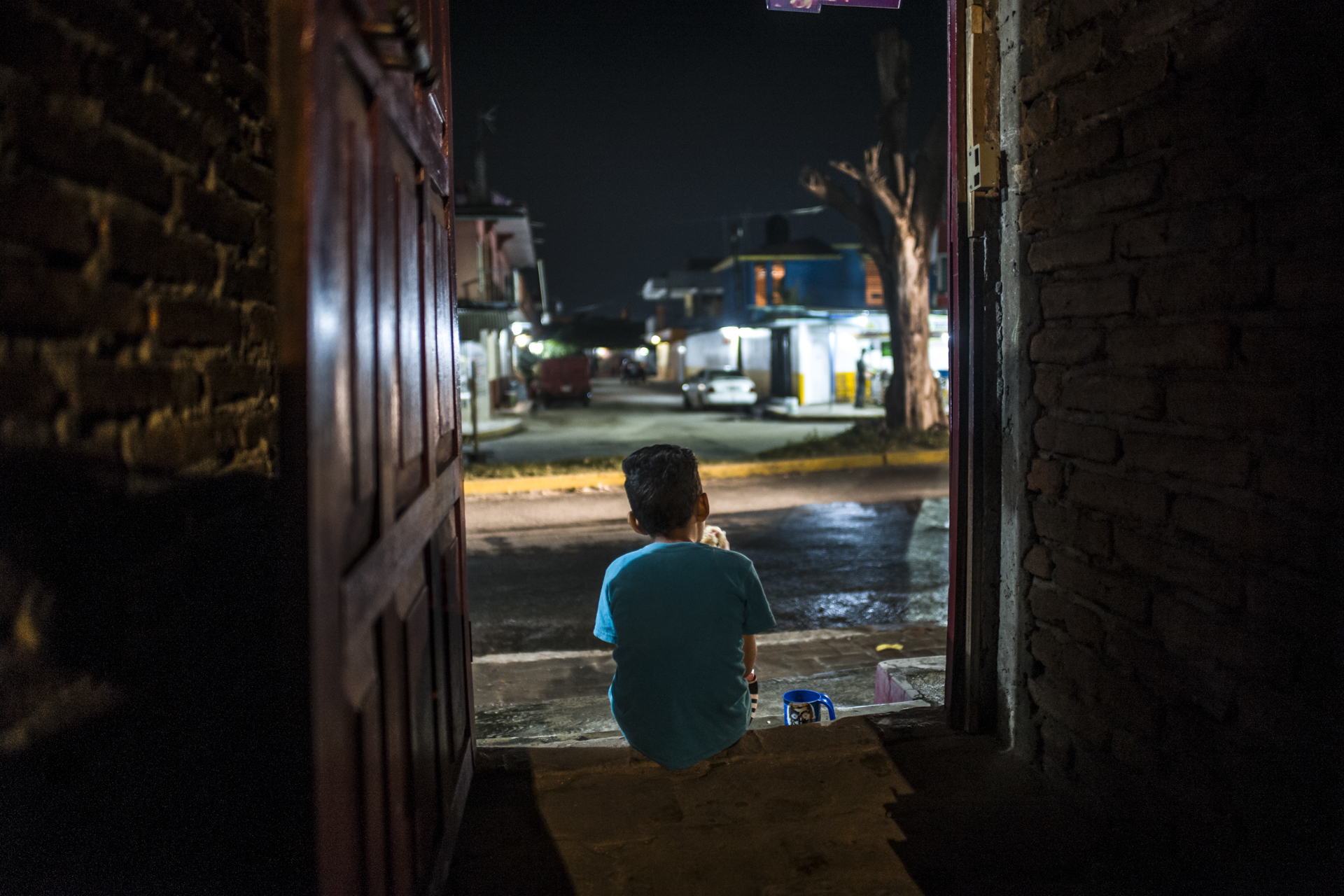
Resigned to continue their journey to the United States or Canada, some migrants have chosen to settle and work in Tapachula. November 27th, 2019. © OLIVIER PAPEGNIES On the road to exile, thousands of people from Honduras, El Salvador or Guatemala are fleeing the multiple violence in Central America to reach the United States in search of a better life. In Tapachula, a city located on the southern border of Mexico, these migrants mix with new nationalities from the African continent. In June 2019, by sealing new agreements aimed at curbing the advance of exiles to the north, Mexico hardened its migration policy under pressure from the United States, turning this gateway city into a prison.


